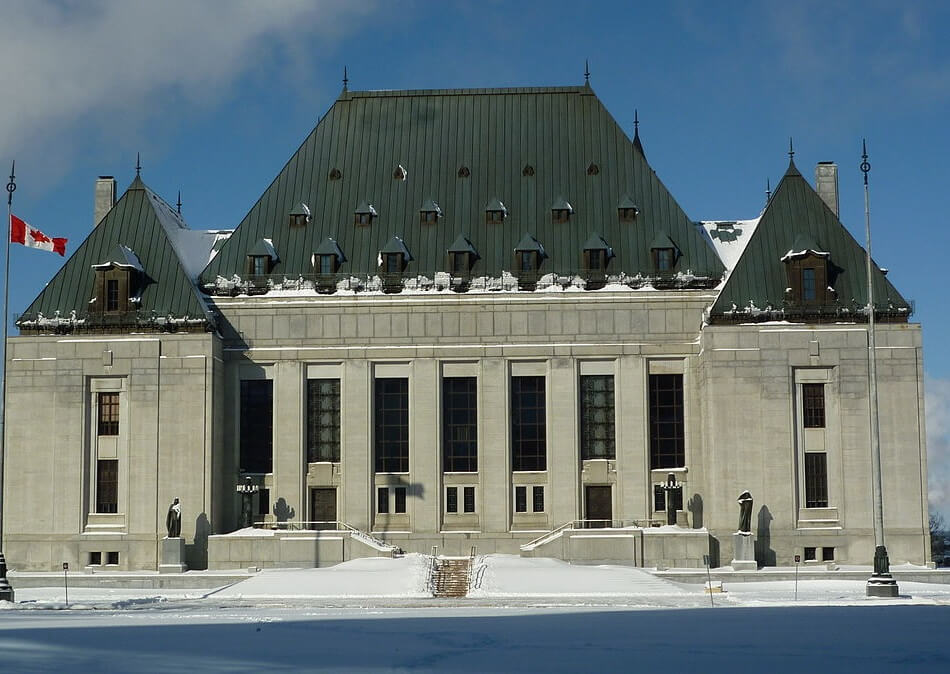This article originally appeared in the National Post.
By Aaron Wudrick, November 9, 2022
The apocryphal origin story of Canada’s Charter of Rights and Freedoms is one familiar to any Canadian with even a passing interest in our history or politics. It goes a little something like this:
In 1982, Prime Minister Pierre Trudeau convened a conclave with the provincial premiers and descended from Mount Laurentian to bestow upon us a miraculous gift: the Canadian Charter of Rights and Freedoms. Nearly two centuries after our neighbours to the south adopted a written bill of rights with constitutional force, Canadians too would finally benefit from a reliable shield against the menacing currents of majoritarian democracy.
Recent events have been unkind to this settled mythology. Last week, the Ontario government invoked a provision of the charter itself to impose a collective agreement on striking education workers, while Quebec recently used the same clause to inoculate discriminatory legislation banning public sector workers from wearing religious symbols.
Given what we’ve all be told about the charter, how is this possible? Aren’t these just the sorts of rights-trampling government actions the charter was intended to prevent?
Inconveniently, the clause in question is no mere afterthought. Section 33 allows governments to declare laws to operate “notwithstanding” certain other sections of the charter. Its inclusion was insisted upon by several premiers from across the political spectrum and was central to assuaging fears of judicial overreach. Without it, it was unlikely any agreement could have even been reached.
The awkward fact of Section 33’s existence has been minimized by its critics ever since. Many claim it was only ever intended to be used sparingly and in extreme circumstances, although these same critics never quite explain just how sparingly and just what said circumstances might look like.
It may finally be time to venture a guess that the purpose of Section 33 is to protect against judicial overreach; that is, the notwithstanding clause is a counterbalance against the court-driven expansion of constitutional rights. Then it follows that governments might start using the clause to put a check on judicial power.
To extend the metaphor of the famous “living tree” doctrine of Canadian constitutional interpretation, which our courts breezily imported into charter interpretation upon its adoption, Section 33 might be considered a pair of shears governments may use to trim any branches they felt were unwieldy.
Concerns about this power are intuitively understandable. After all, what is the point of enlisting courts to protect fundamental rights from the tyranny of the majority, if governments elected by said majority can simply overrule them? As the aforementioned use of the clause by Quebec to ban religious symbols shows, governments may indeed choose to victimize minorities in order to please a larger political constituency.
Yet majoritarian tyranny is not the only threat faced in a democracy. And when elected figures make unpopular choices, the public at least has the opportunity to hold them accountable at the ballot box. What happens when judges exercise power in a way they should not — going beyond the interpretation of existing rights and instead venturing to conjure up new ones?
Expansive interpretation of charter rights by courts — effectively “discovering” or inventing constitutional rights previously unknown — expands judicial power by supplanting parliamentary latitude. Some might argue this is a good thing, but a system of government where the voting public has an ever-shrinking ability to shape the laws of the land seems less, rather than more, democratic.
Viewed this way, Section 33 is not only an appropriate tool for governments, but an essential one to preserve the power of voters.
In fact, contrary to what fans of judicial supremacy may believe, many interpretations of charter rights are reasonably contestable and defensible. Rights interpretation is not like doing math. Nor is it just politicians and judges who might disagree: often judges disagree amongst themselves. This is why appeals courts function as miniature electorates where majority votes still prevail; why higher courts often overturn the decisions of lower courts; and why the Supreme Court of Canada has increasingly overturned its own precedents.
Whatever the merits of its recent invocation, the provinces’ use of Section 33 has at least put to rest some sacred myths about the nature of our charter. While jarring for many, it’s a long overdue opportunity to grasp what it really says, and to have an adult conversation about the trade-offs between giving the final say on contentious rights debates to either courts or elected officials.
Aaron Wudrick is the director of the Macdonald-Laurier Institute’s domestic policy program.






